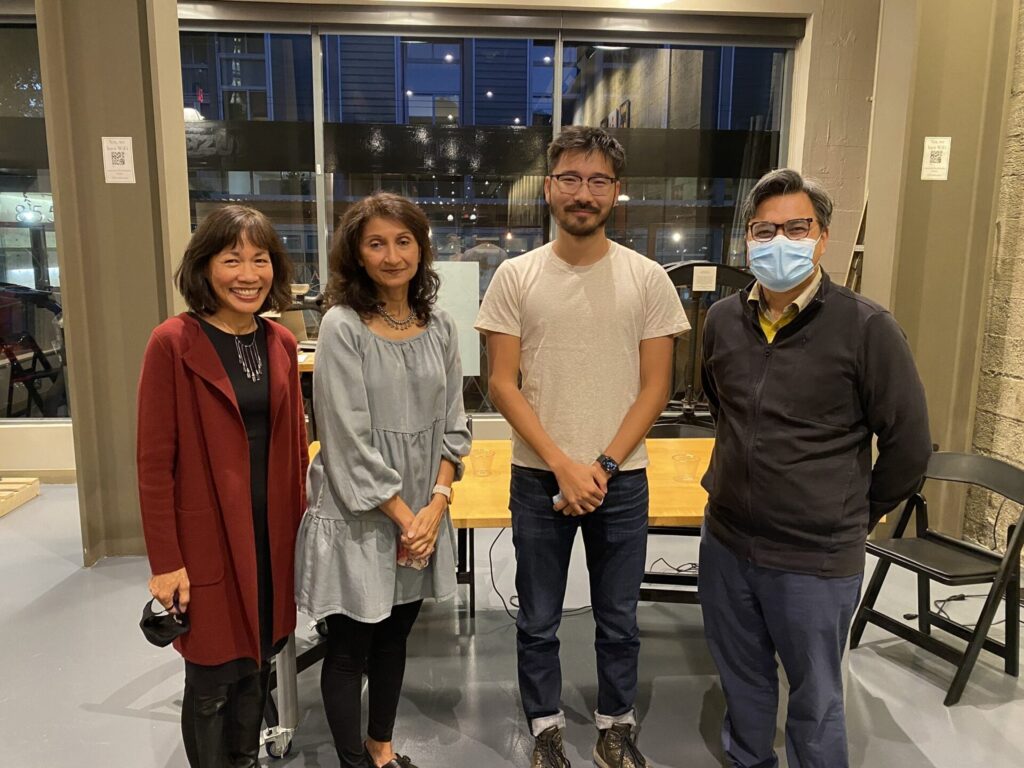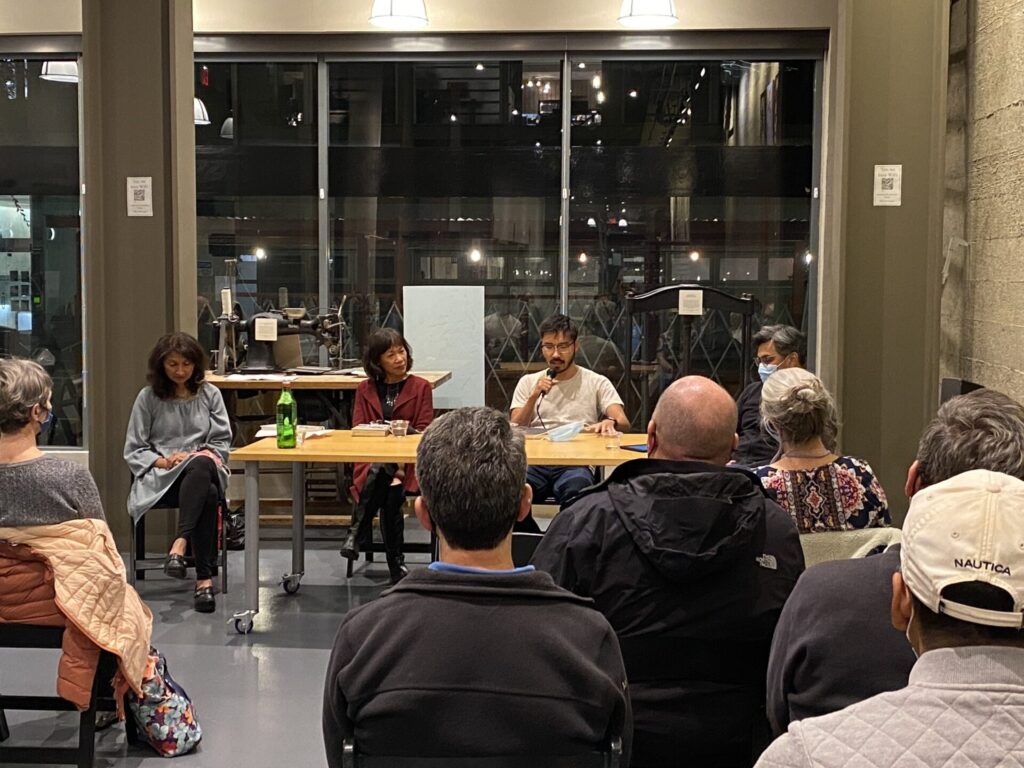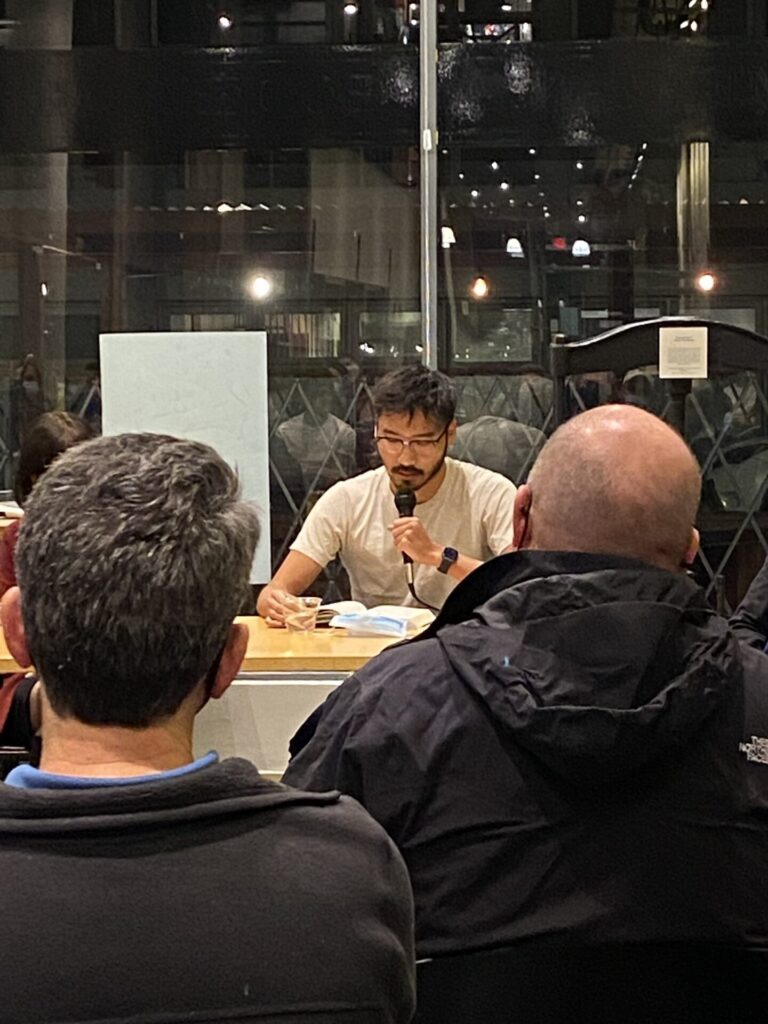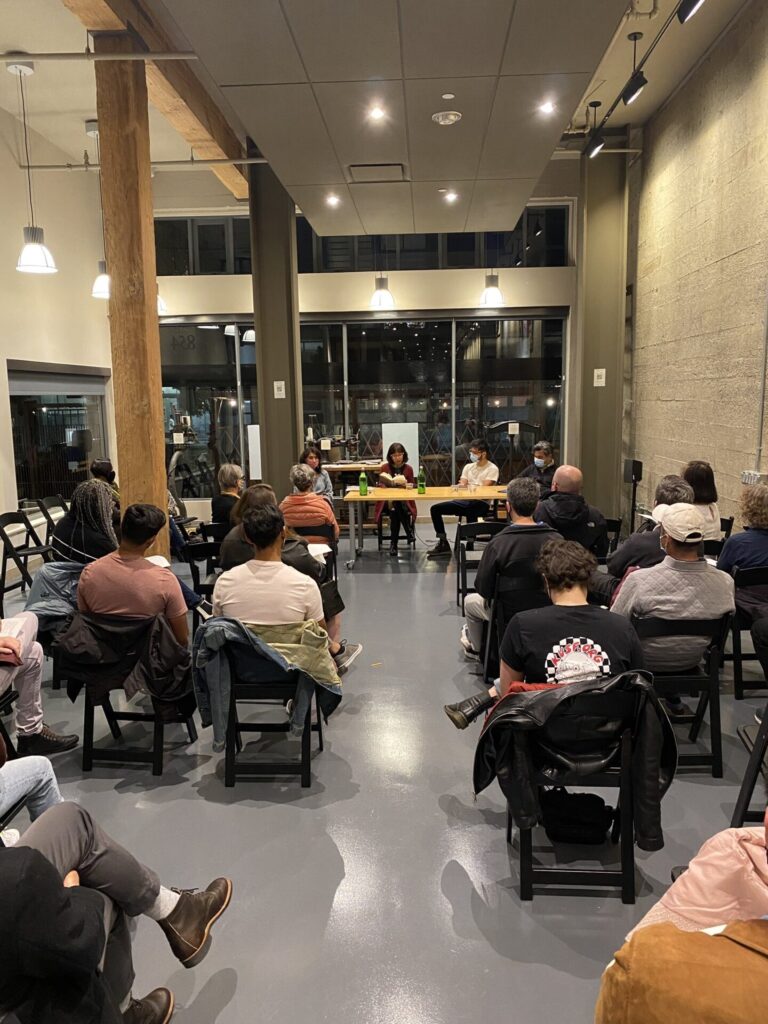In early August, Morgan Frank, board memeber of The National Book Critics Circle, contacted me to be part of a panel she was putting together for a Litquake event co-presented by The National Book Critics Circle and sponsored by the Yerba Buena Community Benefit District. She was researching Filipino-American writers in California and came upon my novel and thought it was a perfect fit. Lucky me.
First a word about Litquake. Running for 21 years now, Litquake’s “diverse live programs are created with the aim of inspiring critical engagement with the key issues of the day, bringing people together around the common humanity encapsulated in literature, and perpetuating a sense of literary community, as well as a vibrant forum for Bay Area writing.” This year’s Litquake was a mix of both online and in-person events. I’m so grateful our event was in person.
Our event took place last Tuesday, October 12th, at the American Bookbinders Museum (355 Clementina Street, San Francisco). A word about the museum, which opened in 2009 though I’d never heard of it before. It is a little gem tucked away in a side street by the Yerba Buena Center and Moscone Center. What a beautiful museum and so perfect for a live literary event. If you’re local, stop by. If you’re a visitor, put it down as a must-see musem.
The event was advertised thus: “Join author Ricco Villanueva Siasoco in a conversation with three debut novelists about the process of building alternative histories of the American West, from the Gold Rush through World War I. Patty Enrado’s A Village in the Fields highlights a compelling but buried piece of American history: the Filipino-American contribution to the farm labor movement; Rishi Reddi’s epic Passage West, Los Angeles Times’ Best California Book of 2020, explores a Punjabi sharecropper family in California during World War I, as they work and live alongside their Mexican in-laws and Japanese neighbors; while Tom Lin’s debut novel The Thousand Crimes of Ming Tsu, transforms the genre of the Western in a story of revenge for forced labor in the American railroad’s expansion.”
I’m still glowing after the event several days later. What a treat for me to read the works by Rishi, Tom, and Ricco. All three were inspiring both from their works themselves to the wonderful conversation we had about writing and researching processes for our historical novels to writing from a minority perspective to writing during a pandemic and what we’re working on now. In their works, I was in their fictive dreams and felt those emotions every writer wishes from their readers. From lyrical writing to just nailing the moment or scene, the inspiration was palpable for me. I recommend all three writers’ works. They were not only wonderfully satisfying for me as a reader, but they inspired me as a writer. Please do check out all three writers’ works. I’m trying to track down a recording to share if one exists. I wasn’t able to post any of the photos David or our good friend, Jane Fischberg, took for security reasons – go figure – but Morgan pointed me to Heather Scott Partington’s twitter feed for the photos below. Thank you, Morgan and Heather! Many thanks, maraming salamat to all who put this event together. From the people I spoke with after the event, the evening was filled with great reading and an invigorating discussion on alternative histories, which I hope becomes not so alternative as we all keep writing.




Congratulations, Patty! So proud that you are being recognized for your great works!
Thank you so much, Leila! Much appreciated!